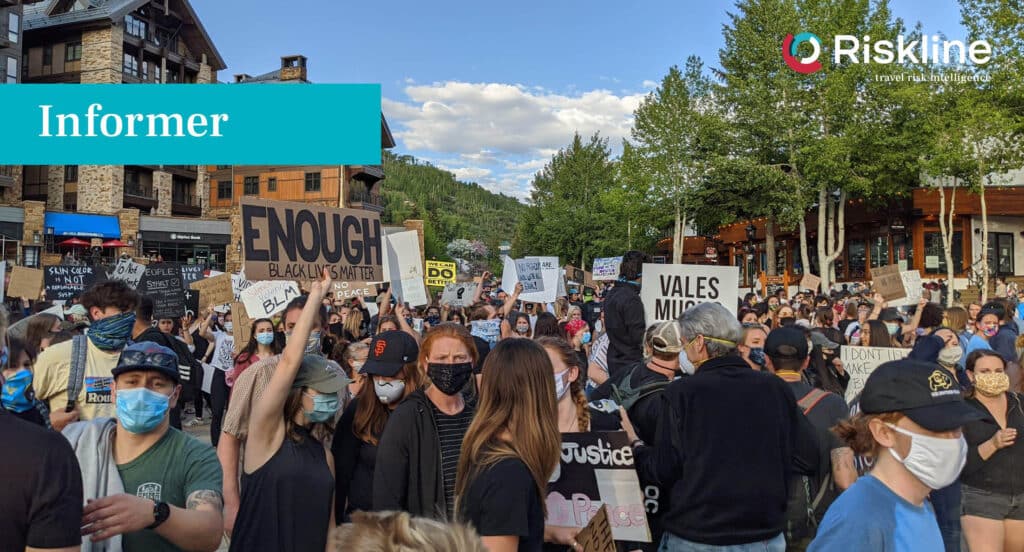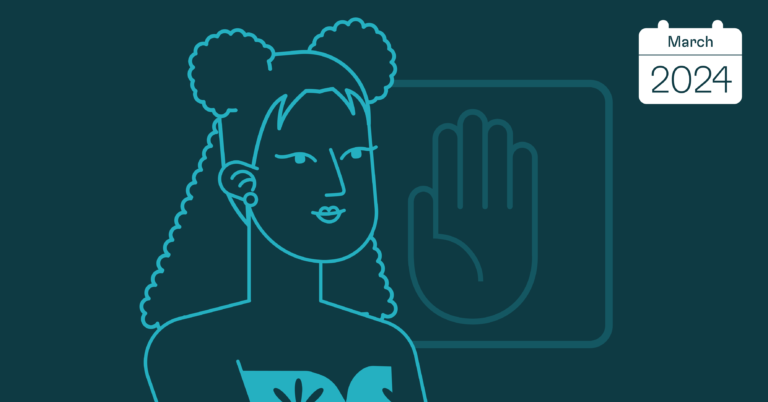In recent days, we have witnessed large protests around the world ranging from the global anti-racism movement to anti-government protests and other issue-specific demonstrations. Protests have continued despite health warnings that large gatherings increase the risk of the spread of the novel coronavirus amid the COVID-19 pandemic. Activists view these demonstrations as a vital tool to raise awareness on pertinent issues, and these protests will continue for the foreseeable future. While there is no risk-free way to protest during a pandemic, people can find safer ways to participate in them by understanding the risk of spread of the infection and how to minimise these risks.
Risks of contracting COVID-19 during protests:
- The spread of COVID-19 is possible at all large gatherings where people are in close proximity to one another, be it indoors or outdoors.
- Some protesters may already have COVID-19 but may be unaware and asymptomatic as the incubation period for the virus ranges between two and 14 days. In some ‘superspreader’ cases, an infected individual has passed on the virus to dozens of other people.
- Prolonged periods of physical activity and emotional stress during a protest raises the risk of contracting the virus for individuals with existing respiratory illness and other health issues.
- When protesters chant or shout there are higher levels of respiratory secretions which increase the risk of spread of the virus from infected participants.
- People face greater risk of contracting COVID-19 during protests which escalate to clashes and/or when teargas and pepper spray are employed by security forces. Teargas, pepper spray and other respiratory irritants will cause people to rub their face or eyes and remove their facemasks which will make them more susceptible to respiratory illness like COVID-19 when outdoors. In addition, these chemical agents also trigger coughing and respiratory distress, allowing the virus to spread to other people as well as causing more harm to the infected person.
To lower the risks of contracting and spreading COVID-19 during protests, health experts have suggested the following measures when participating in protests:
- Avoid going to a protest if you are feeling unwell.
- Wear a protective face mask which covers your nose and mouth.
- Maintain a distance of at least 1.5 meters (six feet) from other participants.
- If possible, attend protests with a small group of people you know (not more than 10) and stick with them throughout the duration of the protest. This minimises your contact with strangers and can aid in contact tracing later if it is needed.
- Wear construction-grade plastic polycarbonate shatter-proof eye goggles to protect against pepper spray, teargas and rubber bullets and carry a bottle of water to wash your eyes if you come in contact with irritants.
- Avoid wearing contact lenses or make up which increases irritation to the face and eyes and may prompt you to touch your face or remove your facemask.
- Leave the scene at the first signs of unrest to minimise risk of being herded in close quarters with other people or being hit with respiratory irritants.
- Maintain good hygiene practices during and after protests. This includes avoiding touching your face and either cleaning hands with soap and water for at least 20 seconds or with an alcohol-based hand rub.
- Self-isolate for at least 14 days after participating in a protest, to prevent risk of spread of infection. Monitor your health and immediately consult a doctor if experiencing fever or difficulty breathing.
- If available, consider getting tested for the coronavirus three to five days after participating in any mass demonstration.
For those who are not comfortable with the risks of participating in street protests at this time, but still want to participate in a movement or promote a particular issue, here are are several alternatives:
- Join an online petition or social media campaign to raise awareness of the issue.
- Donate to a fund or organisation which supports the movement or issue.
- Consider attending a silent vigil or similar event in which there is less shouting and intermingling of crowds.















